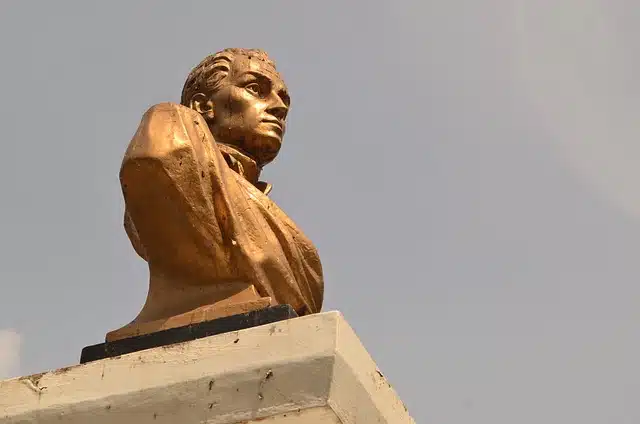
As an institution, the Moral Power was proposed by Simón Bolívar.
Power is a notion that refers to a capacity or faculty . It can also be about the empire or authority that a person or entity has to exercise their will.
Morality , for its part, is formed by the values, beliefs and traditions of an individual or a community. This set allows us to determine what is good and what is bad, guiding the action.
What is moral power
The concept of moral power was developed by the Venezuelan hero Simón Bolívar . According to the proposal made by Bolívar in a draft Constitution that was presented in the 19th century , the Moral Power would be an institution dedicated to citizen education and to ensure that access to public offices and their exercise were prohibited to those men and women. women who lacked ethical principles.
The figure of Moral Power , also known as Citizen Power , was incorporated by the Constitution of the Bolivarian Republic of Venezuela (promulgated in 1999 ). This is a body composed of the Comptroller General , the Attorney General and the Ombudsman .
Although Moral Power was considered a constitutional innovation for the country, the inspiration for this concept (which Simón Bolívar had suggested almost two centuries ago) dated back to the figure of the censor in the ancient Roman Republic , more than four hundred years before the beginning of this millennium.

The Moral Power was established by the Constitution of the Bolivarian Republic of Venezuela that was promulgated in 1999.
The role of the censor
As seen in the foundations of the Moral Power, the censor was responsible for preventing the unworthy from accessing public office. Every five years, two censors were elected by the comitia centuriata (one of the Roman assemblies, which was presided over by a consul), who formed a collegiate magistracy and who had the responsibility of carrying out the census, supervising public morality and addressing some issues. related to public finances.
The Moral Power , which operates autonomously with respect to the other powers of the State , is responsible for analyzing and eventually sanctioning those behaviors of public officials that are contrary to ethics .
Moral Power and the limit to rulers
In its broadest sense, what the Moral Power proposed by Bolívar and included in the current Venezuelan Constitution aims to study, verify and punish violations of the law and abuses committed by rulers, in addition to ensuring that citizens do not leave aside their moral obligations.
The Ombudsman's Office is a body that had no precedent in the Constitution of Venezuela until 1999 and, like the comptroller general and the attorney general, it can act alone or in a group, given that it enjoys independence . Any citizen who aspires to be part of them must apply to the Assembly through the corresponding Nomination Evaluation Committee , after which only those who have obtained two of three favorable votes will be chosen and will be able to access the position for 7 years.
The Republican Moral Council
These bodies are united in the so-called Republican Moral Council , which must exercise the Moral Power. It has financial and functional autonomy, and its objective is to investigate and sanction actions of the Public Administration that are considered unethical . When acting separately, the functions of these bodies are well defined and are all of great importance in upholding the Law:
* The Ombudsman's Office participates in the Republican Moral Council and defends citizens through the surveillance, defense and promotion of constitutional rights and guarantees;
* the attorney general, who heads the Public Ministry, exercises criminal action on behalf of the State, guarantees the speed of the administration of justice and protects victims of punishable acts, among other functions, all established in article 285 of the Constitution ;
* The Comptroller General supervises, monitors and controls all the country's assets.
